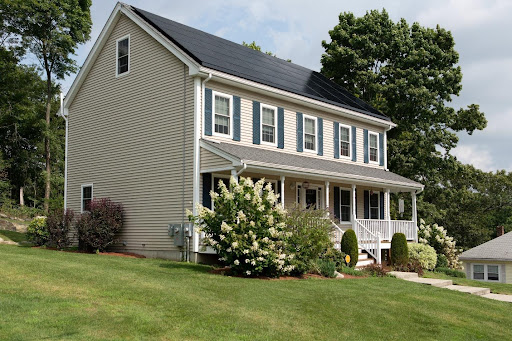In light of technological advances, there is a strong clamor for sustainable living through the utilization of clean and renewable energy. There are various sources of pure and viable energy such as nuclear, hydroelectric, wind, biogas, and solar, to name a few.
However, solar power is the most dependable and cost-efficient to install and maintain. Therefore, it dominates the market in terms of preference.
Taking the renewable energy route in powering your home is one of the wise decisions you’ll ever make as a homeowner.
There are numerous advantages of using a solar panel lights system, such as reducing electricity bills, tax credits and rebates, massive savings, and minimizing the carbon footprint.
Typically, solar energy is derived from photovoltaic panel (or photovoltaic (PV)) solar systems. To ensure the efficiency of this investment, collaborate with a reputable solar company. They are a team of experts who can handle and facilitate solar-powered homes. This article is an excellent resource material on the significant considerations before the installation of solar systems.
- The location and orientation of the house
Optimal solar performance is attributed to the reception of adequate solar radiation. Therefore, the location of the house and the inclination of the roof are crucial for the panels to receive extensive sunlight coverage.
Ideally, the site must be exposed to ample sunlight distribution. In this way, dependency on the primary power grid is minimal.
Qualified solar experts must ensure that sunlight distribution is sufficient. However, considerations should be implemented on supplementary systems to arrest this inefficiency if this is a challenge.
- The energy requirement
Robust and well-configured PV solar systems are the elements needed to meet all the power demands of a property and the homeowner. For example, in cases that the owner decides to derive power off the grid, the solar system should accommodate.
Similarly, in instances that the property will demand complementary supply, the system should handle it.
- The solar company
One of the crucial considerations is to be mindful and critical of a reputable and accredited solar contracting company. Due diligence is essential in researching the best group of experts that can provide more extended warranties, regular servicing, and maintenance of the PV systems.
In addition, these units must have equally reputable suppliers under their wing to conduct installations, testing, and spare parts requirements.
The energy requirement is likewise under the purview of the contracting company. The types of solar systems will also depend on the manufacturing company.
Various types may have different designs, sizes, and capabilities. With these distinctions, some solar companies may offer more expertise and experience on monocrystalline panels than thin-film.
Therefore, research will come into play in choosing the best team of experts for your solar requirement.
Next, a reputable solar company is up to date with the latest technologies in production and installation. Therefore, select a solar partner to attune to the entire installation process, and follow up its effectiveness.
Lastly, authorized companies have the reach and network for state and installation permits. Hence, they can make sound recommendations on the solar project’s feasibility in the property and with the authorities.
- The lifespan of the solar system installation
The durability of the solar panels significantly affects the return on investment of the unit and installation. The lifespan is directly proportional to the number of years the system is in optimal performance.
During the sourcing out process, it is vital to observe its reputation, warranty service, reviews, and the testimonials of previous clients. Surface-level evaluation without getting into the specifics may turn out to be disastrous and a complete waste of capital.
- The timeline of the installation
The length of installation of solar panels may vary depending on the energy requirement, type of solar system, and capability of the contractor. High energy requirements tend to be labor-intensive as equipment needs to be mounted, thus requiring a more extended installation period.
However, established companies with a large and trained workforce can accomplish this in a few weeks, therefore reducing the cost of operation.
- The overall cost of the project
It is crucial to be privy to the costs upon implementation of the home solar system. With the long list of environmental benefits, global support has been overwhelming, and so prices have considerably decreased over the years.
In addition, factoring in incentives from the government makes it even more cost-efficient to go solar. Best to canvass each contractor carefully and compare.
Conclusion
Ultimately, solar technology is instrumental in the sustainable living movement. We owe it to future generations to actively participate in this resource conservation and eliminate hazardous environmental emissions.
Solar power systems must be proliferated by a governing body to encourage their utilization. Awareness, education, and advocacy are vital elements for this technology to be a home staple.
Related Posts:
[…] Source link […]